America's newest National Park Service site tells a different segregation story
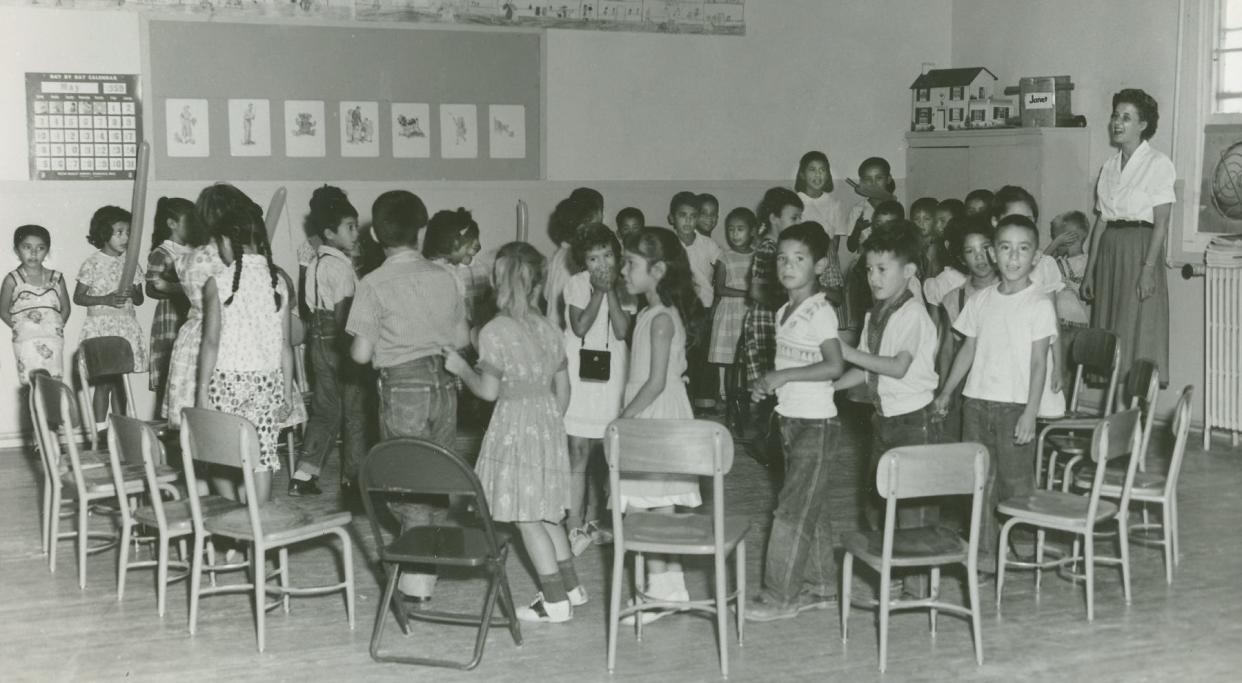
When Mario Rivera attended the Blackwell School in Marfa, Texas, in the 1950s, he didn't think much about it.
"It was just a normal school," the 79-year-old said. "The students were, of course, Hispanic, being that it was a segregated school."
He didn't realize it was segregated at age 7 because everyone around him was in the same boat.
"We were never told that there was another school for the white students across the tracks," Rivera said.
As an adult, he and fellow alumni in the nonprofit Blackwell School Alliance have worked to not only save the school from demolition but preserve its history. After years of lobbying Congress in partnership with the National Parks Conservation Association, President Joe Biden this month authorized the Blackwell School as a national historic site, and the whole country will soon be able to learn from it as America's newest National Park Service site.
“As a nation, we must face the wrongs of our past in order to build a more just and equitable future. The ugliness of the segregation era had many impacts that we have failed as a nation to adequately acknowledge,” Interior Secretary Deb Haaland said in a statement. “This new designation will help us tell a truer American story, and ensure this important and painful chapter in our nation’s history is preserved and remembered for the generations to come.”
'Mr. Spanish' was buried at this Texas s: What the Blackwell School's past can teach us today
Living in a different country, losing family: How Latinos keep a cultural connections
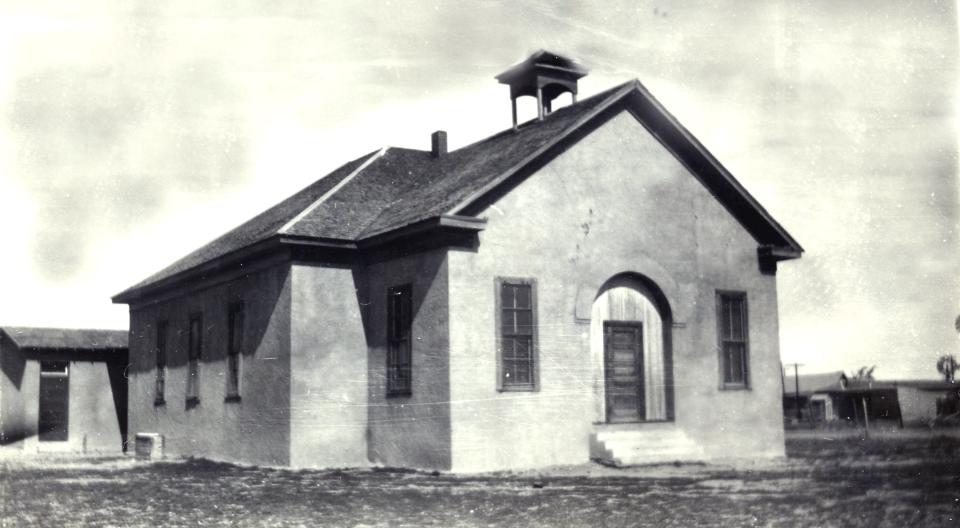
What is the Blackwell School?
From 1909 until 1965, the Blackwell School was a segregated school for first through eighth-grade students of Mexican descent in Marfa, Texas.
"If you're a historian, you'll remember the Treaty of Guadalupe Hidalgo, which brought this great, great territory of the Southwest into the United States. Well, that treaty ensured that people of Mexican descent would be given the full rights of American citizenship," said Gretel Enck, president of the Blackwell School Alliance. "The way that played out was not true. Traditionally, folks have been denied many, many rights, and education is just one of them."
Enck said students got hand-me-down books, sports equipment and musical instruments. They were also forbidden from speaking Spanish. At one point, a mock funeral for the language was held at the school, and students were punished with a paddle if they spoke it, according to the National Parks Conservation Association.
"A lot of us forgot our language and didn’t want our children to speak Spanish," former student Jessi Silva said in a statement. "But also today, we are in danger of forgetting our history. The Blackwell School is part of our history, in Marfa and beyond."
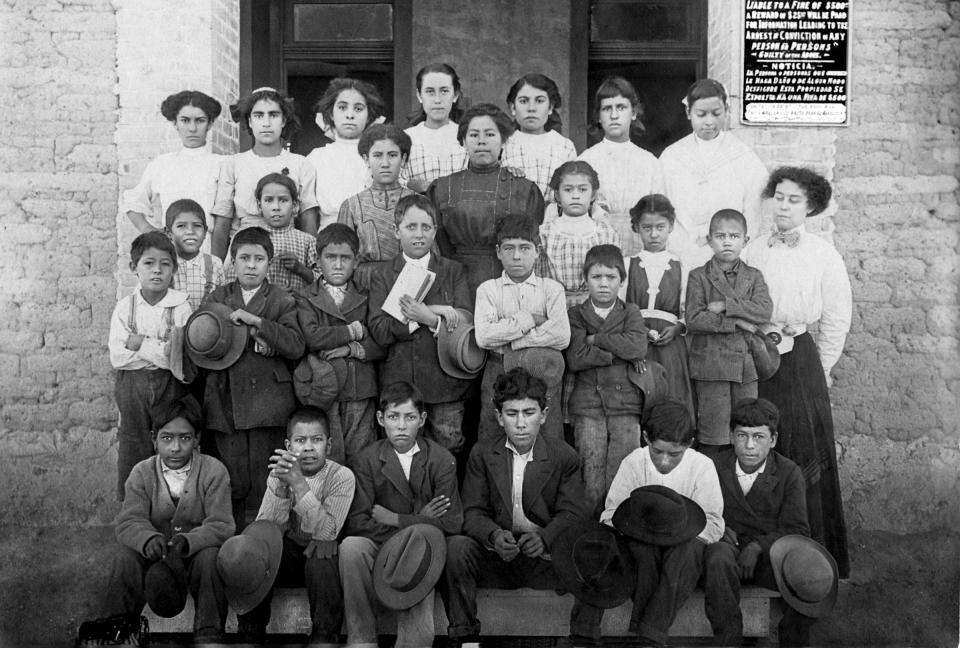
That history is complicated and not all bad, according to Enck. While some former students recall feeling humiliated and discriminated against in school and the larger community, others had "wonderful" memories, according to the Blackwell School Alliance.
"We also had a core group of really dedicated teachers at Blackwell who were sort of overcoming this systemic problem of discrimination against these children," Enck said. "And one interesting thing about a lot of our alumni is they went on to careers in education."
'It makes you question your identity': What it means for Latinos to lose Spanish fluency
Why is the Blackwell School becoming a national historic site?
Not only is the Blackwell School one of the last remaining “Mexican Schools” of its kind in good standing condition, but it will also be "one of the first national park sites dedicated to telling modern Latino history," according to the National Parks Conservation Association.
"Everywhere you read about other races, but the Hispanic portion of American history is very limited," Rivera said. "The preservation of the Blackwell School here allows for a little bit of Hispanic history to be exposed."
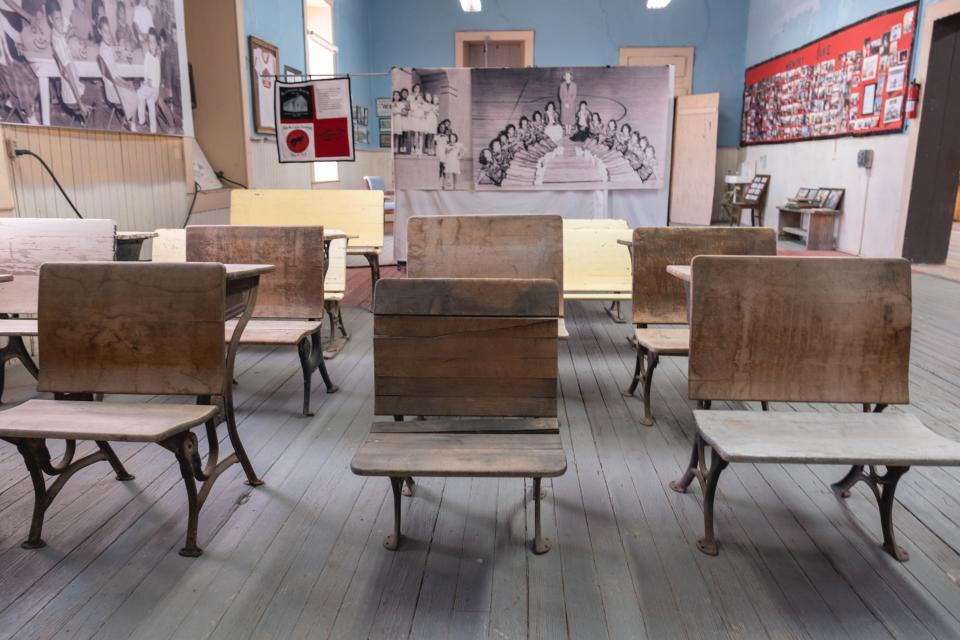
There are a number of spaces within the National Park Service's existing 423 sites, where visitors can learn about Latin American history, but the Park Service is continually working on increasing representation and inclusion across its system.
“It is our solemn responsibility as caretakers of America’s national treasures to tell the whole story of our nation’s heritage for the benefit of present and future generations,” National Park Service Director Chuck Sams said in a statement.
'Canciones de Mi Padre': How Linda Ronstadt fought — and won — a battle to release a Mexican folk album
When can I visit?
The Blackwell School is currently open to the public on weekends afternoons and by appointment on weeknights. Details can be found on the Blackwell School Alliance website. It's currently being managed by the Alliance.
It's expected to take more than a year for the National Park Service to formally acquire the land and establish it as a national historic site.
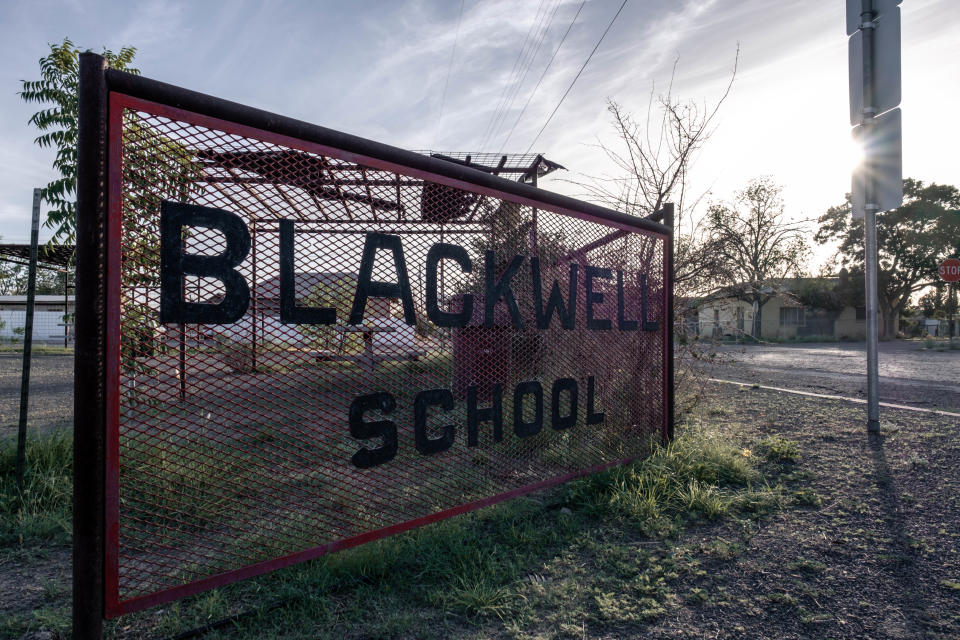
“The National Park Service will continue working closely with key stakeholders dedicated to the preservation of Blackwell School, and those directly impacted by the de facto segregation of Mexican Americans during the early 1900s, to preserve and interpret this significant historic site to the public," Sams said.
Enck is excited about the resources that come with the new designation.
”I don't just need money. I mean all of the expertise that the Park Service brings in telling challenging stories and complicated stories of American history," she said. "We really hope that this opens up doors for other stories of Hispanic, Latino history to be told.”
How to travel better: What national parks can do to make the outdoors more accessible to every body
This article originally appeared on USA TODAY: Blackwell School becomes America's newest National Park Service site
